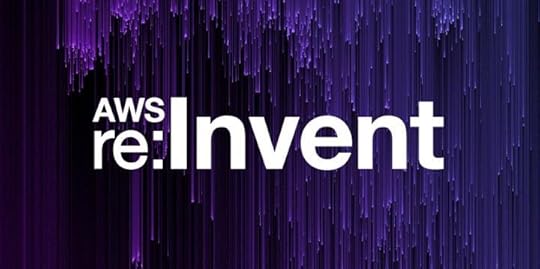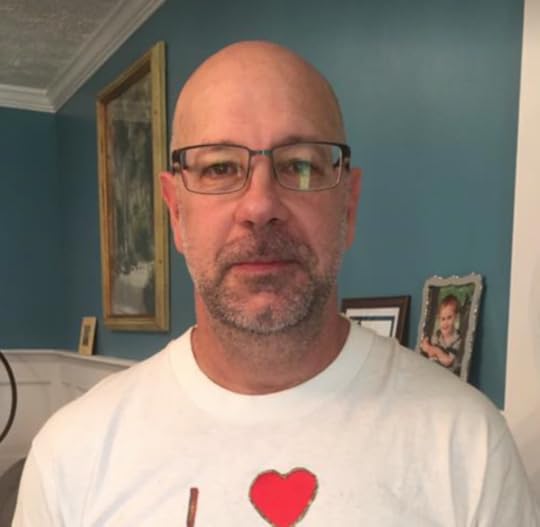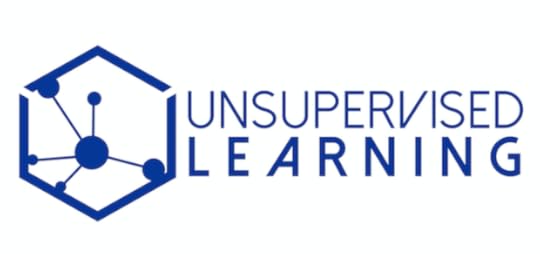Daniel Miessler's Blog, page 92
December 13, 2018
Remote Doctor Visits Are Spectacular
 Start Membership
Start Membership
Thank you,
Daniel
How to Survive if You Wake Up in the Past

My friends and I have always had a fun game we play, where we imagine what we’d do if we were thrust backward in time.
So you’re like dropped in Rome at 1 BC, or Britain in 1300. What would you do?
We’re ignoring language, but that’s important too of course.
You know all these technologies are possible, but do you know how to tell anyone? So I’m making this post to keep my skills up—just in case.
Here’s a list of things I think we would want to be able to explain and/or build.
Printing Press
Germ Theory
Heliocentrism
Gunpowder
Anti-biotics
Maxwell’s Equations
Laws of Thermodynamics
Newton’s Laws of Motion
Relativity
Steam Engine
Combustion Engine
What am I missing?
I’m going to keep updating this post. I’m going to answer each one in as simple terms as possible.
—
I spend between 5 and 20 hours creating this content every week. If you're someone who can afford fancy coffee, please consider becoming a member for just $5/month…
Thank you,
Daniel
December 11, 2018
December 9, 2018
Why I Believe Postmodernism is Causing Depression

There’s a lot of confusion about the term Postmodernism. To people on the far left, it’s their shadow religion—basically a healthy disregard for any value system that has exerted influence (and caused suffering) in the last few thousand years.
To the far right, it’s a rejection of all that is good in the world—like tradition, family, piety, and conservative (see Good) culture.
So let’s discard those definitions and start with something less biased. Let’s go with: a system of questioning traditional meaning structures that are based on claims of objective truth.
Postmodernism is basically pushback against the idea that science and reason deciphered reality enough to inform how we should live.
To me both interpretations are incorrect, but I think there is something to the idea that discarding traditional meaning structures can be harmful.
By ultimate I only mean until we can re-program ourselves.
I think the three concepts above—goals, struggle, and success—represent the foundation of human happiness. These three things are the meaning loop given to us by evolution, which represents our (currently) unalterable firmware.
All three are essential to happiness. You have can have one or two, but unless you have all three you’ll be unfulfilled. Let’s look at each of them.
Goals determine what we’re ultimately trying to achieve in life. If you don’t have something that you’re striving for, then you won’t be able to struggle to attain it, and you won’t be able to succeed in that struggle.
Struggle is deeply meaningful when you’re chasing something that matters. Struggle is often associated with suffering, which—again—can actually be positive if it’s associated with a meaning structure that’s important to you.
Success is only valuable if you had significant goals and also had to work to get the prize. If it wasn’t a meaningful goal, or if it came to you easily, the reward will be hollow.
Evolution’s map
Evolution gave us the ultimate versions of these three tentpoles.
GOALS: Survive and reproduce
STRUGGLE: Fighting and courtship
SUCCESS: Winning in battle, sex, children, financial prosperity
These three things were hardcoded into us so that we would do our best to keep our genes alive. That’s why this is the standard for happiness—because it’s the rawest form of our programming.
But we live in a modern society where killing people in battle and having sex with as many people as possible isn’t encouraged anymore.
We have to find new goals, struggles, and successes that serve as useful proxies for those given to us by evolution.
So we have to adapt. Our modern-day Meaning Loops include things like:
Having a career as an engineer, or a doctor, or a bricklayer
Being a homemaker and mother
Discovering new things about the world and universe
Dedicating your life to God
In all these cases, you set your goal as something distant—like creating something new, or being the best in your field, or providing for your childrens’ futures. And then you work towards that goal. You grind. You suffer. You toil. And then eventually—after a number of decades—you accomplish what you set out to do.
These are pretty good proxies. They’re not nearly as pure as struggling on the plains of Africa like in the beginning, but they’re about as close as we can get without abandoning civilization and living in the mountains.
The key point here is that we cannot forget our programming from evolution. We need to do something that emulates that 1, 2, 3 of Goal, Struggle, Success. And that’s where Postmodernism comes in.
Postmodernism questions structure
The primary function of Postmodernism is questioning.
It challenges things. And most important is that it challenges structure, truth, and convention. Unfortunately, this also attacks one of our three pillars directly: GOALS.
Think about all the different concepts that Postmodernism can undermine:
The idea that religion is useful
The idea that we’re subordinate to evolutionary psychology
The idea that men and women might want different things from life
The idea that science can reveal good ways to live
What happens when you learn so much about the world that you discard most ways of life as misleading or harmful?
You can’t be religious because it’s not true. You can’t be a capitalist because it’s evil. You can’t be a housewife because it’s exploitative. You can’t be an entrepreneur because you’re becoming part of the income gap problem. You can’t disappear into the woods because you’d be giving up on humanity.
What are you supposed to do?
What does a meaningful life look like once you know the flaws of the various belief systems?
The path forward
I hope you didn’t think I had the answer here.
There isn’t any one answer, which ironically is something you learn from Postmodernism.
Anyway.
What I can tell you is that I see people struggling with emptiness.
They’ve discarded so much false meaning in their lives that they’re left with no meaning at all.
I actually think Church-going Fox News watchers have an evolutionary advantage in that they receive evolution’s rewards by having goals (a conservative world), struggle (against the liberals), and victories (getting Trump elected).
If you’re reading this you probably see that as a horrible benchmark for success, but remember—evolution doesn’t care what you’re doing. It just wants you to want something and to pursue it. If you do that, and get any sort of success, it will gift you with some measure of happiness.
Hopefully not on Fox News
So find your Fox News somewhere.
Find your meaning structure. Find your loop. Find your goals, struggle, and success.
Emulate the Meaning Loop that exists within all of us, and resist the urge to discard all loops just because they’re imperfect.
Evolution doesn’t play fair, and it literally controls whether you’re fulfilled or miserable.
Adjust accordingly.
Summary
Evolution hardcoded us to need three things: goals, struggle, and success.
Back in Africa it was obvious what we needed to do, but not anymore.
Find a meaning loop that has these three components, even if it’s not perfect.
—
I spend between 5 and 20 hours creating this content every week. If you're someone who can afford fancy coffee, please consider becoming a member for just $5/month…
Thank you,
Daniel
InfoSec
This is a collection of my most popular information security content going back to 1999, including tutorials, blog posts, references, and concepts.
Attack
Security Assessment Types
The Difference Between a Vulnerability Assessment and a Penetration Test
The Difference Between Red, Blue, and Purple Teams
A Masscan Tutorial
A Bettercap Tutorial
How to Use Shodan
When to Use Vulnerability Assessments, Pentesting, Red Team Assessments, and Bug Bounties
Purple Team Pentests Mean You’re Failing at Red and Blue
An nmap Primer
Defense
Obscurity is a Valid Security Layer
An iptables Primer
The Difference Between Events, Alerts, and Incidents
Information Security Metrics
Same Origin Policy Explained
Serialization Bugs Explained
A Security-focused HTTP Primer
Vulnerability Database Resources
Assorted
My Information Security Blog Posts
Information Security Definitions
The Difference Between Threats, Vulnerabilities, and Risks
How to Build a Successful Information Security Career
The Birthday Attack
Information Security Interview Questions
Encoding vs. Encryption vs. Hashing
Diffie-Hellman Explained
The Difference Between the Internet, the Deep Web, and the Dark Web
—
I spend between 5 and 20 hours creating this content every week. If you're someone who can afford fancy coffee, please consider becoming a member for just $5/month…
Thank you,
Daniel
December 2, 2018
What I Found Most Interesting from Amazon re:invent 2018

Amazon has completely crushed it again at this year’s re:invent conference.
They continue to innovate a truly frightening pace. And when I say frightening, I mean…in that it creates fear within me. It’s just doing so much, so quickly, that I can’t help but feel uncomfortable.
But it’s a good thing. I think. It’s definitely sending a great message to basically anyone in technology, which is, “We’re coming for you, and we just might implement your business as a special project next weekend”.
Anyway, they announced way too many things to focus on individually. Here were the ones that stood out to me.
Keep in mind that many of these projects by Amazon start off with very basic functionality, and only get good enough to replace a startup’s offering after multiple updates.
AWS Control Towwer: Shots fired at all the various AWS security startups out there, as this thing gives you a single place to go to manage your account’s security.
Security Hub: Gives you a single view of your highest-priority security alerts. Basically the beginnings of a SIEM and/or orchestration play.
AWS On-prem: Run AWS services locally.
Lake Formation: Create data lakes within AWS.
Global Accelerator: Basically a global performance and availability network.
Amazon Personalize: Create personalized recommendations using your own data, just like Amazon’s.
Amazon Textract: Automatically extrat text from all sorts of inputs.
Amazon Sagemaker: Train models using reinforcement learning.
Cloud Map: Map out your various applications and how they talk to each other.
Ground Station: Full-managed satellite communications service.
Amazon Deepracer: Train autonomous cars using a small but accurate physical scale model.
Quantum Ledger Database: They basically took the most powerful use case for Blockchain and made it a standalone service.
Managed Blockchain: No need to roll your own anymore.
Amazon Timestream: Their own version of a time-series database.
RoboMaker: Create, test, and deploy robotics applications.
C5n EC2 instances for super high bandwidth requirements
If I had to pick I’d say the top 5 were:
AWS Control Towwer: Shots fired at all the various AWS security startups out there, as this thing gives you a single place to go to manage your account’s security.
Security Hub: Gives you a single view of your highest-priority security alerts. Basically the beginnings of a SIEM and/or orchestration play.
Quantum Ledger Database: They basically took the most powerful use case for Blockchain and made it a standalone service.
Amazon Personalize: Create personalized recommendations using your own data, just like Amazon’s.
Global Accelerator: Basically a global performance and availability network.
Other companies need to figure out how Amazon innovates at this pace, and copy it.
—
I spend between 5 and 20 hours creating this content every week. Iif you're someone who can afford fancy coffee, please consider becoming a member for just $5/month…
Thank you,
Daniel
November 27, 2018
My Friend Chris Romeo Died Yesterday

I used to work at Aflac with a bunch of cool guys.
One of them was named Chris Romeo. He was always smiling and trying to figure out how to turn the previously uttered sentence into a joke.
He called it checking someone’s oil.
One day he came up behind me next to our cubes and tried to stick his thumb up my butt. I gave him a look that made it clear he was close to death. And I said, very, very quietly that he should never, ever, ever do that again.
He was like, “Ok, point taken”. And all was good.
He liked to create mischief, in the harmless and friendly kind of way. Like an ancient fairy or elf in a magical forest.
If I heard someone laughing, or shouting out in surprise, I knew Chris Romeo was within 20 paces.
He died yesterday. My friend Brooks told me, and then we saw it on Facebook.
He and I weren’t super close. We were a bit distant from each other on the political spectrum.
But a couple of times I took him and his son, Ryan, to the local recreation center to play table tennis. Ryan was a super nice kid. Kind, and whip-smart. I could tell the moment I met him.
I was driving back to San Francisco just now, after just having learned about him passing, and I suddenly remembered Ryan.
He was just a kid then, and it’s been over a decade, but I wondered if I had his number still.
Siri, call Ryan Romeo.
Sure enough—it starts ringing. It was super late there, and I’m sure his world is chaos right now, so I didn’t expect him to answer. I left a simple message.
Hey Ryan, not sure if you remember me, but you and I met once or twice when you were a kid like ten years ago. We went and played table tennis a couple of times. Anyway, I heard the news, and I hope you’re doing ok. Let me know if you need anything.
Simple and worthless enough, but it’s hard to know what else to say in such a situation.
15 minutes later he called back.
I asked him how his family was, where he was living, how everyone was doing, and told him to let me know if he needed anything.
I told him I knew it was super late there, and that I’d let him go.
But he stops me, and says that he wanted to thank me.
For what?, I say.
Turns out he and his Dad kept playing Table Tennis after that, and it became their thing whenever he would come visit him over the years.
And he thanked me for that.
That hit me hard.
Table Tennis was a thing that they shared, and I might have played a small part in that.
I was saddened by his passing, but I wasn’t truly affected until I remembered Ryan. And I wasn’t reduced to tears until I heard that there was some kind of positivity injected into his son and his relationship as a result of us briefly meeting.
I’m left with a few thoughts.
You only get to meet a few people in this life, and every single one of them matters.
Try to spread positivity in everything you do, with everyone. Chris made me smile, and every time I think about him until I die, he will continue to do so.
I am thankful for Table Tennis because it has this strange way of bringing people together, and I am so happy that it served that purpose for Ryan and his father as well.
Goodbye Chris Romeo.
I enjoyed the time we spent together on this earth, and you left it a better place by helping to secure it for all these years, and by having such a great son in Ryan.
You will be missed.
—
I spend between 5 and 20 hours creating this content every week. Iif you're someone who can afford fancy coffee, please consider becoming a member for just $5/month…
Thank you,
Daniel
November 26, 2018
Unsupervised Learning: No. 150

This is a member-only even episode. Members get the newsletter every week, as well as access to all previous episodes, while free subscribers only get odd episodes every other week.
—
I spend between 5 and 20 hours creating this content every week. Iif you're someone who can afford fancy coffee, please consider becoming a member for just $5/month…
Thank you,
Daniel
Unsupervised Learning: No. 154

This is a member-only even episode. Members get the newsletter every week, as well as access to all previous episodes, while free subscribers only get odd episodes every other week.
—
I spend between 5 and 20 hours creating this content every week. Iif you're someone who can afford fancy coffee, please consider becoming a member for just $5/month…
Thank you,
Daniel
Why You Should Directly Support as Many News Sources as Possible

By now most people understand that there’s a serious problem with the news, but I’m not sure how many know how fundamental it is.
Here’s the underlying issue:
The companies that make the news we consume are for-profit businesses.
These companies aren’t just pressured to increase profits, but will go out of business if they don’t constantly adapt to their competition.
The best way to make money for a news site is to sell ads.
Outrage is one of the most powerful methods of getting someone to engage with a story, so that is what we’re seeing more of.
This has effectively destroyed traditional journalism, since companies producing news have no choice but to create stories that will get more attention and ad views.
It’s not a reporter problem, or a media company problem—it’s an incentive problem.
The business model for modern media companies is advertisement, and that business model conflicts directly with the public interest of informing people through balanced coverage.
Advertisements are the center of the media universe because they pay the bills, so if you’re a reporter or an editor, you must do whatever you can to get people to click links. There is no amount of complaint or criticism or nostalgia that will fix this. It’s the business model.
But there’s a solution. We must transition to a world where media companies receive their livelihood from their customers instead of sponsors. We must adopt the subscription model.
I also converted to a subscription model for this site, which wasn’t easy since I could easily make several thousand a month from sponsorships.
Once a company is getting paid from their customers instead of sponsors, they’re free to provide the value that their customers actually want and need. And they’ll no longer have to worry about whether a sponsor will dislike their content.
Here are a few of the sources I subscribe to:
The New York Times Subscribe
The Economist Subscribe
The Wall Street Journal Subscribe
The New Yorker Subscribe
Wired Subscribe
Sam Harris’ Waking Up Podcast Subscribe
Ben Thompson’s Stratechery Subscribe
That seems like a lot (and I might actually be missing a couple) but I am thrilled to do it.
This is how you fight back. You fight back by directly supporting your favorite sources. Free them. Help them. Liberate them from the bondage of advertising dependency.
So many of the worldwide problems we face are too massive for individuals to make a dent. Global warming is a major problem, and recycling at your house is little more than a spiritual win. Same with giving to a major charity. You know it does good, but it feels like thimbling the ocean.
Not so with this.
This type of direct digital support is so new, and so powerful, that small numbers make a difference.
Don’t sit this one out. Don’t decry the downfall of journalism from the safety of your computer. Do something.
Bring your favorite sources to mind and go sign up to at least one of them.
Be part of the solution.
Notes
If you can’t support your favorite sources for financial reasons, that’s fine. Just vow to do so as soon as you can.
Since you asked, you can support my work here. Subscribe
—
I spend between 5 and 20 hours creating this content every week. Iif you're someone who can afford fancy coffee, please consider becoming a member for just $5/month…
Thank you,
Daniel
Daniel Miessler's Blog
- Daniel Miessler's profile
- 18 followers




